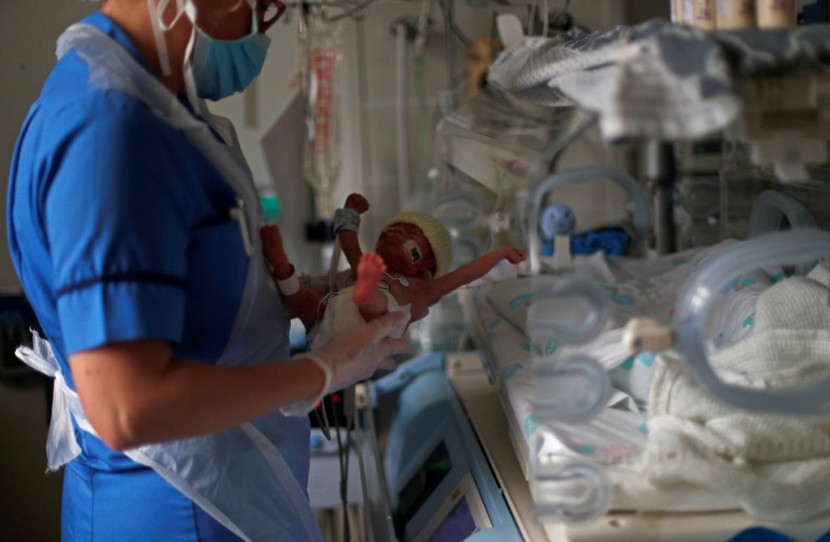A new study reveals that pregnant women infected with COVID-19 may give protective antibodies to their unborn child.
Pregnant women with COVID-19 can transfer antibodies to their babies

COVID-19 antibodies can be passed into the unborn baby's placenta if the mother caught the coronavirus while pregnant, Philadelphia-based researchers found. These findings are a good sign for concerned parents. However, parents are unable to assert with certainty that the infected mother's newborn will be safe from COVID-19 as the science is still evolving, researchers say.
The study looked for antibodies in the pregnant woman's blood samples and cord blood from the attached umbilical cord and the placenta right after labor. At the time of birth, the umbilical cord blood is a perfect reflection of the newborn's blood, as per Daily Mail.
The study ran between April 9 and August 8 last year. Eighty-three of the 1,471 women tested positive for COVID-19, and antibodies were found in the cord of 72 (87 percent) of the babies.
Meanwhile, 11 babies born to coronavirus-positive mothers, who have no antibodies, tested negative for COVID-19.
Read also: Miracle Baby: 15-Weeks Premature Withstands Odds, Beats E.Coli, Sepsis, COVID-19 After He was Born
The researchers in JAMA Paediatrics published a study and wrote that the cohort study of maternal antibodies to SARS-CoV-2 transferred across the placenta after asymptomatic and symptomatic infection during pregnancy.
The baby inherited more antibodies if the mother had a high number of antibodies. In contrast, the mother's small number of immune cells would pass on less to her infant, researchers also discovered.
Dr. Karen Puopolo, the corresponding author, said that the findings need to be placed in the context of the fact that COVID-19 is a new virus. Therefore, during maternal virus exposure until the delivery of the baby, it was never longer than three to four months in their study. Among cases, it was found that the time was shorter than that.
However, enough time is needed between maternal infection and infant delivery for the mother to make the COVID-19 antibodies that cross the placenta.
Researchers found that the time between maternal exposure to COVID-19 and the delivery would be two to three weeks. It would then detect antibodies in the newborn. The findings support the potential antibodies derived from the mother to protect their newborns from COVID-19 infections.
Dr. Puopolo said there is no change in how health experts care for pregnant women and their newborns. Their work cannot determine if a woman and her baby are safe from the virus. The doctor added that work is still done to tell what levels and types of antibodies protect babies from the coronavirus infection and how long the antibodies may last in the newborn circulation.
Read also: COVID Vaccine Death? Authorities Investigate Death of Healthcare Worker After Receiving Coronavirus Shots
Pregnant women should get the COVID-19 vaccine
Dr. Richard Beigi, who sits on The American College of Obstetricians and Gynecologists' Immunization, said pregnant women are encouraged to get the COVID-19 vaccine. There is no theoretical reason that it will cause harm to either the mother or her unborn child.
Beigi, who is also president of UPMC Magee-Women's Hospital in Pittsburgh, claimed that COVID-19 vaccines would provide considerable benefits to both the mother and the baby.
According to CNN via MSN, only a few people, particularly those with severe allergies or advanced cancer, are advised to avoid taking the COVID-19 vaccine.
However, experts say pregnant women with concerns should consult their OB-GYN.








